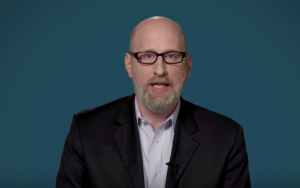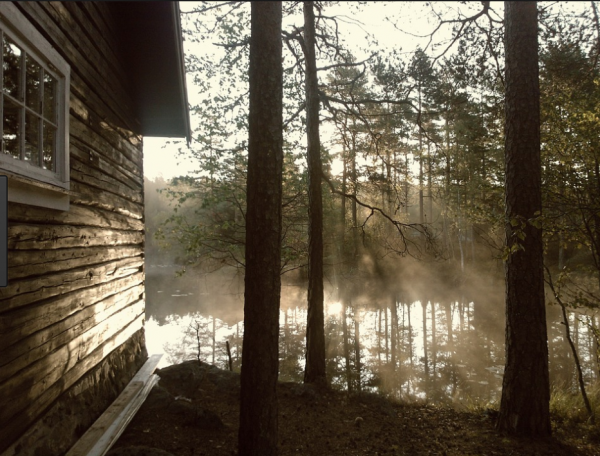I frequently get e-mails from writers asking advice about getting their book published. Because the process seems shrouded in mystery, I thought I’d write down how it happened for me. (Warning: Though I’ve published four books, I am thirty-six years old and do not know everything about the publishing industry. Take all of this cum grano salis.) Though the publishing world is changing rapidly, I’ve only gone the traditional route with large publishers. For a good article about how the publishing world is changing, click here. For those interested in trying to get a traditional book deal, here are my suggestions:
1. Live an exciting, interesting, courageous, absurd life.
Many people can string sentences together beautifully, but not many have anything worth saying. Live your life in a way that gives you an interesting perspective. I’ve waited tables at a rural Tennessee Huddle House, served at a fancier Nashville burger joint, stuffed envelopes for an a capella music group, worked for a New York catering company, sold nursing uniforms and stethoscopes, sold bicycles to rich folks in Manhattan, answered phones for a lumber company, wiped snotty noses at a day care center, and worked as a secretarial assistant for a coal mining firm. In other words, you don’t have to sit around in writer’s groups talking about the perfect way to form paragraphs in order to gain the “life knowledge” required to have a great book.
However, you do need to know how to write. This doesn’t necessarily mean you have to have a liberal arts degree in writing. In fact, I’ve dropped out of three colleges and still don’t have a degree. However, I did manage to learn the mechanics of it somewhere along the way of dropping out of David Lipscomb, New York University, and the University of Kentucky. Are you the kind of person who doesn’t like to follow the rules? You still have to know the rules if you want to creatively break them. There’s no way around it. If you’re not sure, then pick up a 7th grade grammar book and review it.
2. Get published in newspapers, magazines, or on the internet.
I recently came across my first binder of published articles. The first article I ever got published was in a Christian ladies’ magazine, and my payment was $10 and four free magazines. Being published, even in relatively unknown places, is your calling card to better publications. My first real break was getting an article in the Philadelphia City Paper, which is given away on the corner for free and has ads for erotic massage parlors in the back. However, I was pleased when I got to write for them regularly as their conservative Christian columnist. It gave me an audience, got me used to writing on deadline, and taught me how to say something in 800 words or less.
3. Write your book.
Almost everyone is “writing a book” or “about to write a book.” Very few people actually have “written a book” – and that means all the way to the last two words: “The End.” If you are a non-fiction writer, then you might be able to get away with writing the first few chapters and a synopsis of the rest. However, you generally should finish your novel before finding an agent.
This means that you sit your butt in a chair and write the book, even if you don’t feel particularly “inspired” or enthused about your book on that day. You write even if you are bored. You write even if the paragraphs lack eloquence. You write even if you aren’t getting paid. Even if the Survivor finale is on. Writers write. Period. And by the way, good writers are not very common, and good writing is very difficult to produce. Are you willing to put in the hours, days, weeks, perhaps years required to excel at your craft? If not, stop here!
4. Get an agent.
When people hear the word agent, they think of sunglasses, sports cars, and a certain lack of authenticity. However, agents are just people. They want to know you, if you are a good writer with a story to tell. That’s how they make money.
But how on earth do you find a good one? I was living in Kentucky when I decided to start writing a novel. But you have to live in New York or California to be a real writer, right? Don’t you have to know how to smoke clove cigarettes and wear black turtlenecks too? For a moment, please retire all you know about the whole getting a book published business, and I’ll tell you how this mother of two found my agent.
The Literary Marketplace publishes a yearly guide to agents, so I went to the bookstore and bought the most recent edition. Then, I spent nights flipping through every page, marking each agent that seemed like a possible match my book. Then, I followed the instructions on how to write a cover letter. To this day, I google, “How to write a cover letter,” and “How to write a book proposal” when I’m trying to start the process anew. (Note: there is enough free information on the internet on how to do this without having to purchase any sort of “how to write a query letter” book.) It’s daunting to get your whole book in one page. But you can do it!
5. Get rejected.
Then the fun started. About every day, I’d go to the mailbox and get at least one rejection. Some were handwritten notes explaining that my characters didn’t work for them or my plot wasn’t plausible. Others were mere index cards that had an “X” in the box next to “Not a good match for our agency, but we hope you find another agent with interests more aligned to your work. Good luck.”
After dozens of these heartfelt rejections, I decided that it was costing me way too much money. That’s when I decided to switch to all electronic submissions. If an agent didn’t accept electronic submission, I didn’t contact them. This sped up the process, cost less, and meant I could get rejected with much more expediency. Then, after 97 rejections, a woman accepted me as her client. I was elated. I jumped up and down. I thought I was on my way to the big leagues. (That number, 97, is not an exaggeration, by the way. This is a hard business.)
The only problem is that my novel was… how shall I put this… bad.
So, after writing a novel and struggling valiantly to find an agent, I was back to square one. This entire process took at least two and a half years. I was in despair. After all, it’s one thing if your newspaper article that you spent a week on didn’t get picked up. But a novel? An entire novel? I wept, threw up my hands, kicked my feet, and called it quits.
6. Get accepted.
Then, one day I was sitting in a children’s museum watching the kids play in Philadelphia’s Please Touch Museum when my phone rang. (We had moved from the Blue Grass State to the City of Brotherly Shove, I mean Love.) My husband’s friend from law school was an agent representing sports figures. (Think Jerry McGuire.) He had just gotten an e-mail from me that had cracked him up. “You know,” he said. “You should write a non-fiction book like your e-mails which talked about politics, motherhood, and life. People would love it!”
In a moment of weakness, I said yes. In a last ditch effort to become a writer, I threw together a proposal, submitted it to my friend/agent, and within two months got a two book deal with Time Warner Books. (Time Warner was bought by Hachette.)
I’ll never forget that call. My friend/agent called me when it was slightly raining and I was walking to meet my husband for dinner. I jumped into a coffee house to make sure I heard him correctly. A two book deal? For how much money? (It wasn’t a huge amount, but when you have resigned yourself to writing your annual Christmas cards, it was eye-popping.) The people in the coffee house were not impressed by how much my life had changed and were annoyed by my loud, excited, conversation. However, nothing could damper the thrill of a first sale! (That was “Red State of Mind: How a Catfish Queen Reject Became a Liberty Belle,” which came out in 2006. The second was “Home and Away: A Story of Family in a Time of War” which came out this summer.)
So, is my story one of connections? In a way, yes. Truth be told, my sports agent friend liked my writing and had the wherewithal to get a book published. I knew him because my husband lived with him in law school. And speaking of law school, they went to Harvard. As much as I talk about my lack of credentials, my agent has them. Could I have gotten a book deal had I not had that connection? It’s hard to tell, but my story proves two important points: it’s possible to get an agent by cold e-mailing agents from The Literary Marketplace, and you must have a good book. (And by the way, aspiring novelists, I had a conversation with an agent recently who told me that most authors have to write two or three novels before figuring out the craft. So in retrospect, the fact that my first novel was pretty terrible shouldn’t have been as devastating as it was to me at the time. I’ve “thrown away” two novels and have written my third now!) Do you have a good non-fiction book proposal or are about to win the Heisman trophy? DJ Snell, based in Orlando, is my friend who encouraged me off the literary ledge and got me the two book deal with Hachette. You can reach him here, without having to pay for Harvard tuition.
And that’s how, about fourteen years after having started my “writing career,” I became a New York Times Best Selling Author. (Okay, I made the list by co-authoring Bristol Palin’s book, “Not Afraid of Life,” but it still counts.) Though writers take many paths to publication, this is my story and I hope it helps you get your book into the hands of readers across America. Please feel free to ask any questions in the comments section below.
I know the process to publication can be long, hard, and demoralizing. But, if you’re willing to put the time, effort, and tears into a great story, you have a real shot!
UPDATE: Since I wrote this post, I’ve had three New York Times best selling books, plus others! Check out my website at NancyFrench.com.










